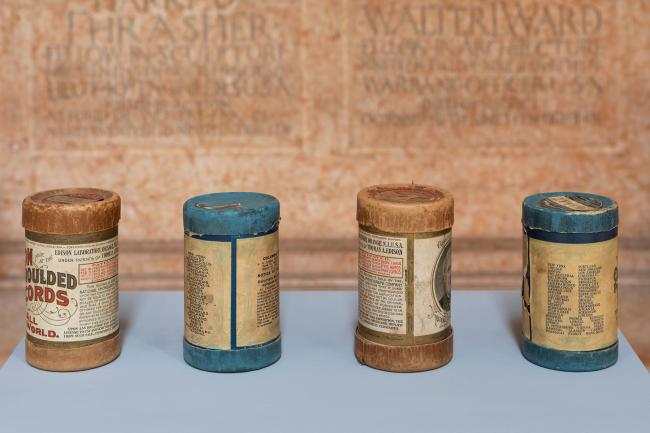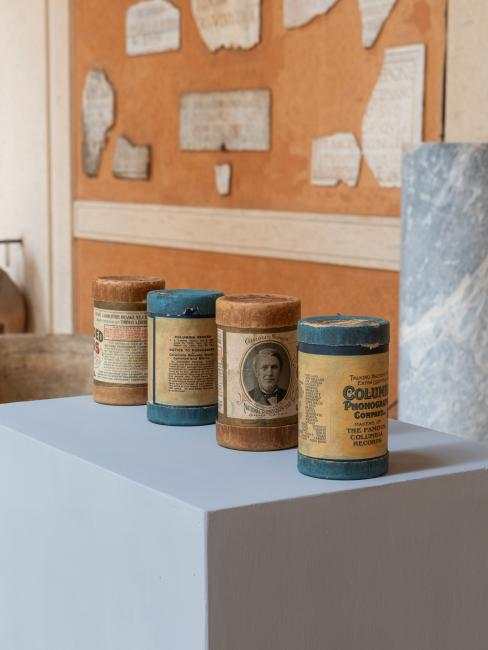William Doughertysoft brown wax
Sound is evanescent. Even when recorded and replayed, it slips away. Contemporary technologies may give us the illusion of permanence, the hope that we can play and endlessly replay a favorite recording, but this is a false promise, as materials disintegrate and machines break down.
William Dougherty makes poignant use of this fact in his composition soft brown wax, referring in his title to the substance used in the earliest musical recordings. This technology, perfected and marketed by Thomas Alva Edison in the late 1880s, involved engraving an audio recording into the surface of a wax cylinder, which was then played back on a phonograph. Each time the cylinder was played it degraded, often quite rapidly, layering the recording with what Dougherty calls “sonic artifacts.”
Dougherty’s composition is built around the disappearing sound of one of these cylinders, an 1888 recording of George Friederich Handel’s “Moses and the Children of Israel” as sung by a chorus of four thousand at the Ninth Triennial Handel Festival in London. Ghostly traces of the original performance emerge from the worn wax, weaving in and out with a small ensemble of acoustic and electronic instruments. Rather than focusing on absence, however, Dougherty calls our attention to the nature of the degraded wax—its subdued, sometimes jarring, often haunting qualities that are a moving trace of the music we can never fully hear again. (ER)
About the artist
Born in Philadelphia, William Dougherty earned a BM degree from Temple University in 2010 and studied at the Royal College of Music in London through a Marshall Scholarship. He also earned a doctorate of musical arts from Columbia University, where he taught and assisted undergraduate courses in composition and music. Dougherty is the recipient of the Charles Ives Scholarship from the American Academy of Arts and Letters and was a resident at Aaron Copland House in 2016. His music has been performed internationally by the London Chorus, TILT Brass, the Talea Ensable, and AskolSchönberg, among others. His discography includes Stimmungen: mikrotonale Musik für Zither (2020), Music from SEAMUS, vol. 26 (2017), and Oracle’s Blast (2015). Doughtery was the 2021 Luciano Berio Rome Prize Fellow at the American Academy in Rome.






